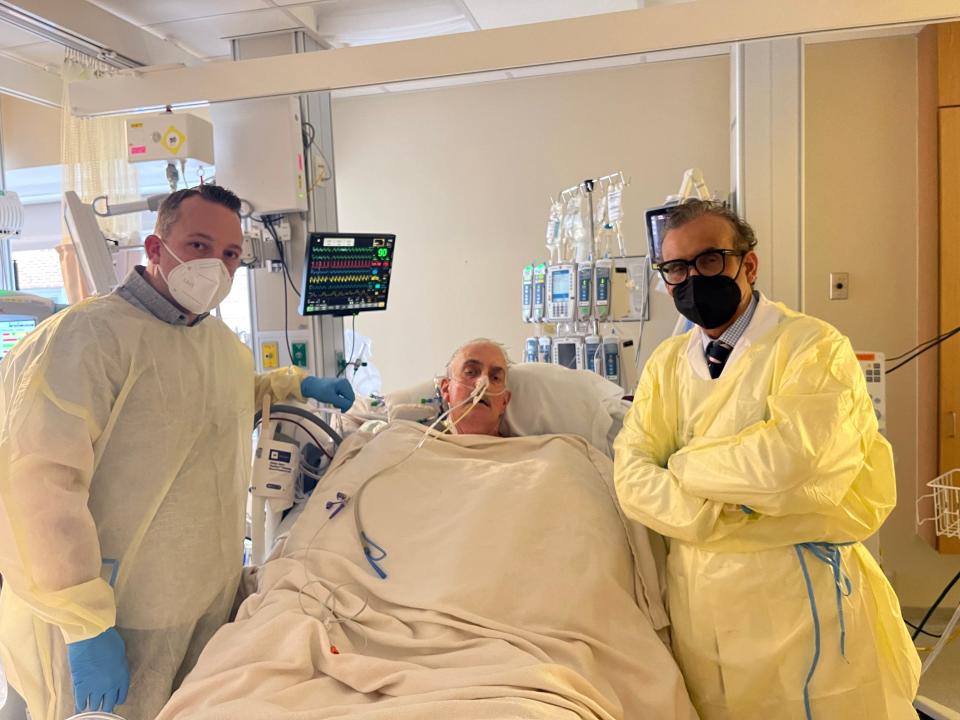Monkey kept alive for 2 years with pig kidney offers hope for humans awaiting transplants
A Massachusetts-based company announced Wednesday that it has kept a monkey alive for two years with a pig kidney, the longest an animal has survived with an organ from a different animal. The work marks another substantial step toward solving the human organ shortage by using animals as donors.
The pig donor is born with 69 gene edits, by far the largest number used in an experiment of this kind, performed to try to reduce the risk of rejection, improve survival and eliminate any chance of a pig virus passing to the organ's new host.
More than 100,000 Americans are waiting for a new organ, the vast majority for a kidney. While people can survive with one healthy kidney, and safely donate the other, the number of living donors is limited. For other organs, patients must wait for someone with healthy organs to die prematurely.
The findings could open the door to many more patients receiving a viable transplant.
Pig-to-human transplants are "the only near-term, viable solution to solving this huge shortfall in organ availability," Mike Curtis, CEO of eGenesis, the company that led the new research, told reporters in a Tuesday call. "We just don't have enough kidneys."
Pig-to-human transplants
For decades, pigs have been seen as a good source of human organs because their biology and size are relatively similar.
But every animal and species has distinct genetics that prevent simple transplantation. Only identical twins can receive an organ from each other without immune-suppressing medication. Crossing the species barrier, while long-imagined, has been impossible until recently.
At the University of Maryland, the second person to receive a heart transplant from a pig, 58-year-old patient Lawrence Faucette, is recovering from his September surgery, following heart failure, and doing physical therapy to regain his strength. The previous patient survived for two months last year with a pig heart. The first patient to receive this procedure, David Bennett, was in poor health when he underwent the transplant, which undermined his recovery. University of Maryland doctors are hoping Faucette will be better equipped to recover.
In other related studies, researchers at NYU Langone Health have been transplanting pig kidneys into patients who have been declared brain dead. In the latest example, a 57-year-old named Maurice Miller, who suffered brain death after being diagnosed with an aggressive brain tumor, was sustained for more than two months with a pig kidney, while a heart-lung machine pumped his blood.
Dr. Adam Griesemer, a transplant surgeon at NYU Langone, said the new research in cynomolgus monkeys is a "significant milestone in the field," but cautioned that when so many genes are modified at once, "you just don't know" whether other aspects of the pig's health will be affected.
Also, testing the pig organ in a monkey, which is a requirement before human trials, leaves open questions about how well the system will work in people. "There's a chance that the function of those genes is going to be a little different when we test them in people," Griesemer said.

Tinkering with genes
In the new study, published Wednesday in the journal "Nature," researchers at eGenesis, based in Cambridge, Massachusetts, and their collaborators, modified 69 genes in the pigs using the CRISPR gene editing technique.
The gene edits are made to embryos and then the pigs are cloned, so each is identical. Eventually, researchers hope to breed pigs with these genetic changes, which will be cheaper and easier to make at the scale needed to provide for human organs.
They deleted three genes that might otherwise have caused the human and monkey to immediately reject the pig organ.
By adding seven human genes to the pig, researchers dramatically improved the survival of monkeys, extending survival from an average of 24 days after transplant to 176 days, Curtis said.
The team also inactivated 59 genes connected to pig viruses.
(Pigs used for transplant are killed, with their organs harvested after death. The monkeys used in research are also killed. Ethicists have said that such research is justified because of the importance of saving human lives, though animal rights activists disagree. In a statement Wednesday, People for the Ethical Treatment of Animals, which opposes all animal research, called the study a "grotesque sideshow," and pointed out that more than a dozen monkeys were killed in these experiments, and that some of them had suffered.)
Other researchers have chosen to modify fewer genes, with the University of Maryland focusing on the first 10 edits, but not the viral genes, which have not been shown to cause disease in humans. The NYU Langone team used just one gene edit but also transplanted the pig thymus, an immune organ, along with the kidney, to reduce the risk of an immune rejection.
In an opinion piece accompanying the study, Dr. Muhammad Mohiuddin, who leads the xenotransplantation, or animal-to-human transplant, program at the University of Maryland School of Medicine, said the new study shows that it is time for regulators to allow trials of animal-to-human organ transplants.
"It will be clinical trials, enrolling people who have been excluded from all other hope of treatment, (who) will truly further our understanding of this remarkable procedure, and help to realize the potential of this technology," he wrote.
Contact Karen Weintraub at kweintraub@usatoday.com.
Health and patient safety coverage at USA TODAY is made possible in part by a grant from the Masimo Foundation for Ethics, Innovation and Competition in Healthcare. The Masimo Foundation does not provide editorial input.
This article originally appeared on USA TODAY: Animal research offers new hope for people in need of organ transplant

